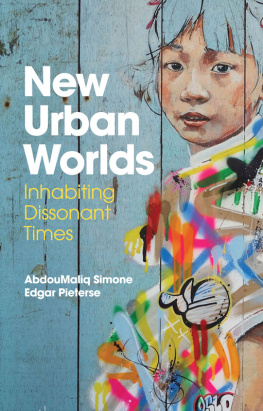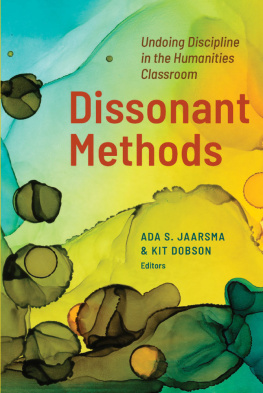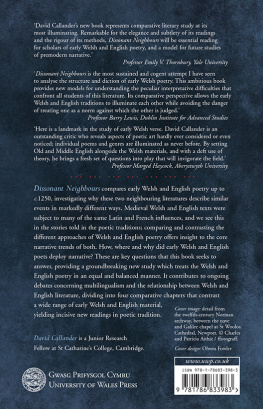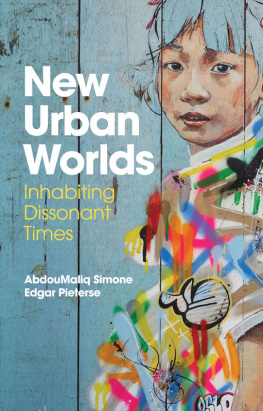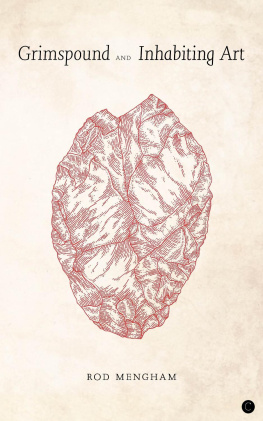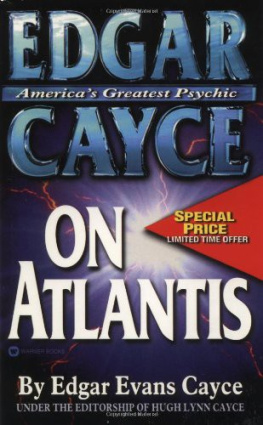Pieterse Edgar A. - New urban worlds: inhabiting dissonant times
Here you can read online Pieterse Edgar A. - New urban worlds: inhabiting dissonant times full text of the book (entire story) in english for free. Download pdf and epub, get meaning, cover and reviews about this ebook. City: Cambridge;(Reino Unido);Medford;MA, year: 2018;2017, publisher: Polity Press, genre: Politics. Description of the work, (preface) as well as reviews are available. Best literature library LitArk.com created for fans of good reading and offers a wide selection of genres:
Romance novel
Science fiction
Adventure
Detective
Science
History
Home and family
Prose
Art
Politics
Computer
Non-fiction
Religion
Business
Children
Humor
Choose a favorite category and find really read worthwhile books. Enjoy immersion in the world of imagination, feel the emotions of the characters or learn something new for yourself, make an fascinating discovery.
- Book:New urban worlds: inhabiting dissonant times
- Author:
- Publisher:Polity Press
- Genre:
- Year:2018;2017
- City:Cambridge;(Reino Unido);Medford;MA
- Rating:3 / 5
- Favourites:Add to favourites
- Your mark:
- 60
- 1
- 2
- 3
- 4
- 5
New urban worlds: inhabiting dissonant times: summary, description and annotation
We offer to read an annotation, description, summary or preface (depends on what the author of the book "New urban worlds: inhabiting dissonant times" wrote himself). If you haven't found the necessary information about the book — write in the comments, we will try to find it.
New urban worlds: inhabiting dissonant times — read online for free the complete book (whole text) full work
Below is the text of the book, divided by pages. System saving the place of the last page read, allows you to conveniently read the book "New urban worlds: inhabiting dissonant times" online for free, without having to search again every time where you left off. Put a bookmark, and you can go to the page where you finished reading at any time.
Font size:
Interval:
Bookmark:

For these inhabitants of new worlds:
Manu, Na'ilah and Rafael

Copyright AbdouMaliq Simone, Edgar Pieterse 2017
The right of AbdouMaliq Simone and Edgar Pieterse to be identified as Authors of this Work has been asserted in accordance with the UK Copyright, Designs and Patents Act 1988.
First published in 2017 by Polity Press
Polity Press
65 Bridge Street
Cambridge CB2 1UR, UK
Polity Press
101 Station Landing
Suite 300
Medford, MA 02155
USA
All rights reserved. Except for the quotation of short passages for the purpose of criticism and review, no part of this publication may be reproduced, stored in a retrieval system or transmitted, in any form or by any means, electronic, mechanical, photocopying, recording or otherwise, without the prior permission of the publisher.
ISBN-13: 978-0-7456-9155-8
ISBN-13: 978-0-7456-9156-5 (pb)
A catalogue record for this book is available from the British Library.
Typeset in 10.5 on 12 pt Sabon by Toppan Best-set Premedia Limited
Printed and bound in the UK by CPI Group (UK) Ltd, Croydon.
The publisher has used its best endeavours to ensure that the URLs for external websites referred to in this book are correct and active at the time of going to press. However, the publisher has no responsibility for the websites and can make no guarantee that a site will remain live or that the content is or will remain appropriate.
Every effort has been made to trace all copyright holders, but if any have been inadvertently overlooked the publisher will be pleased to include any necessary credits in any subsequent reprint or edition.
For further information on Polity, visit our website: www.politybooks.com
For invaluable assistance in work in the field, much gratitude to Rika Febriyani, Dian Tri, Anant Mariganti, Marco Kusumawijaya, Hannah Schilling, Osmane Dembele and Uzair Fauzan. For abiding discussions and support, gratitude to Ash Amin, Gautam Bhan, Talja Blokland, Teresa Caldeira, Anton Cartwright, Filip De Boeck, Graeme Gotz, Kim Gurney, Katherine Hyman, Irmelin Joelsson, Michael Keith, Achille Mbembe, Sue Parnell, Jo Santoso, Mark Swilling, Tau Tavengwa, Mirjam van Donk and our colleagues at the African Centre for Cities, University of Cape Town. The National Research Foundation of South Africa and the Max Planck Institute for the Study of Religious and Ethnic Diversity support our research. Edgar Pieterse acknowledges the support of the Stellenbosch Institute for Advanced Study in order to get the early research for this book done. Lastly, thanks to Duke University Press for permission to republish work by AbdouMaliq Simone that appeared in Cultural Politics, 12/2 (2016).
New Urban Worlds is primarily a polemic, an impassioned argument that stretches across diverse experiences, literatures and professional domains. It is a polemic because it tries to call for things even if all of the evidence is not yet in and often hard to come by. We call for the intersection of long-honed everyday practices of African and Asian urban residents with new forms of governing and with a strategic deployment of technological innovations of varying kinds. We desire to restore experimentation as a normative aspect of living in and running cities and want to think about how concretely to create space for such experimentation to be possible.
We are aware that, when you call for things, the immediate question is How do you know enough about what is going on in order to call for something specific? And, even then, should you reveal everything you know is going on, especially at a time when we are all being read in ways that we cannot control and often do not even know are taking place? But let us consider briefly what we think is going on something about the fundamental conditions that drive the calling of this book.
If you are one of the scores of millions of residents across much of the urban South who cannot depend upon one specific job to earn your keep, who lacks sufficient documentation to secure a place to live over the long term, or who can't afford to get sick or into any kind of trouble, what is it that you pay attention to in order to know something about what to do? What happens if the people you rely upon for support or information are no longer available or suddenly turn against you? What happens when the skills you have to apply are also those of an increasing number of residents, and competition becomes increasingly fierce for opportunities? The question here is how can you best know what is going on and try to situate yourself in a position where opportunities might come your way? In other words, how can you be at the right place at the right time when there is no clear map available? We are convinced that these kinds of considerations dominate the minds and spiritual practices of most urban dwellers, yet much of what appears in both urban scholarship and policy prescripts seems oblivious.
In a not dissimilar way, researchers of urban life face difficulties when it comes to engaging with the largely makeshift complexion of many cities in Africa and Asia. The enormous transformations of the built environment and the enhanced possibilities of consumption that have marked even some of the most marginal of the world's cities should not detract from acknowledging just how dependent the majority of the urban residents of these regions are upon constantly putting together some workable form of income and inhabitation. The makeshift character of much of what this majority does is quite literally make+shift, as pointed out by Vasudevan (2015).
Whatever they come up with is rarely institutionalized into a fixed set of practices, locales or organizational forms. This doesn't mean that relationships and economic activities do not endure, that people do not find themselves rooted in the same place and set of affiliations over a long period of time. Rather, these stabilities come from constant efforts on the part of inhabitants to redefine the boundaries and interfaces between work, leisure, home, neighborhood and elsewhere. It entails constantly addressing the questions What spaces are relevant to me?, What do I pay attention to and where?, Who do I talk to and do things with?, Who can I depend on and show things to? In neighborhoods across the urban South, whatever is made, in terms of economic activities, buildings and social solidarities, then shifts in terms of its availability to specific uses and users, as well as its exposure to new potentials and vulnerability.
Drawing upon decades of work in poor, working- and lower-middle-class districts in urban regions across Africa and South-East Asia, this book attempts to weave interconnections among different ways of engaging and thinking about the complexity of how different urban actors decide and act within highly circumscribed and often uncertain contexts.
In methodological terms, it means that we locate our research and propositions within a relational epistemological force field that is anchored by two axes. The first axis stretches from surface knowledge to in-depth understandings of highly localized phenomena, including psychological interiors of actors. Surface knowledge references the insights that one can assemble from quantitative data sets that allow the analyst to consider scale, frequency, relationalities and patterns over time. Quantitative trends are crucial to appreciate the specificities of urbanization dynamics in diverse geographical scales in the early twenty-first century, when the very foundations of the economy, political systems and cultural reference points are undergoing profound change. At the same time, due to the make+shift character of these cities, it is equally important to expand dramatically in-depth accounts of the social drawing on relational ontologies (Pieterse 2015a). It is only by triangulating both depth and surface dimensions of contemporary urbanism that can we hope to get a purchase on what is actually going on.
Next pageFont size:
Interval:
Bookmark:
Similar books «New urban worlds: inhabiting dissonant times»
Look at similar books to New urban worlds: inhabiting dissonant times. We have selected literature similar in name and meaning in the hope of providing readers with more options to find new, interesting, not yet read works.
Discussion, reviews of the book New urban worlds: inhabiting dissonant times and just readers' own opinions. Leave your comments, write what you think about the work, its meaning or the main characters. Specify what exactly you liked and what you didn't like, and why you think so.

